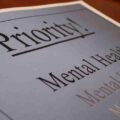People are quick to jump to a worst-case scenario. That creates ongoing distress. Anxiety is sticky. We tend to make illogical leaps when we’re nervous.
Ironically, feeling stressed like this not only feels bad, but increases the risk for becoming ill. The anxiety is being driven by collective uncertainty over what will happen, even
though evidence so far shows the new virus causes mild symptoms in most cases.
People may experience everything from feeling nervous as they watch the news, to experiencing panic when they’re near somebody who coughs or sneezes. It doesn’t matter if the person with sniffles is someone affected by allergy season.
Here are some simple steps you can take right now to feel better:
- Take a media break
Don’t immerse yourself in news about the coronavirus 24/7. Stay up to date using trusted sources, like the website of the Centers for Disease Control and Prevention, then step away.
- Wash your hands frequently
It’s something that will actually lower your risk of getting sick. Wash your hands for a full 20 seconds using warm water and soap. Handwashing is one of the best ways to protect yourself and your family from getting sick.
- Practice good self-care
Get plenty of nutrients by eating fruits and vegetables, exercise regularly and get enough sleep. Sleep has a direct impact on the immune system. You can take all the vitamin C you want, but if you are sleep deprived, your immune system is compromised.
- Take sensible steps to prepare
There’s definitely reason to take precaution, so being adequately prepared will provide peace of mind. Ready.gov, the government’s website, has concrete tips, like storing a two-week supply of water and food.
- Go for a walk outside
Time spent in nature is soothing for the mind and body. Sunlight may lower your blood pressure, research has found.
- Acknowledge your anxiety
It’s generally unhelpful to tell a highly anxious person to just stop feeling anxious.
Instead — whether it’s coronavirus or another panic-provoking situation — it’s useful to just acknowledge the anxiety and work through it.
- Write down your worries
Seeing the words on paper or on a screen may stop you from spinning yourself into a frenzy. What are you catastrophizing? Write down the things you find yourself thinking
and reflect on them. Challenge your own thinking to get it more in balance and reasonable.
- Send a little love to people who you care about
Put together a text message chain or email chain with family on it —that way you can have it set up before it feels like an emergency situation and easily communicate with your loved ones.
Written by Face2Face Healing’s Clinical Psychologist-
Adriane Deithorn




